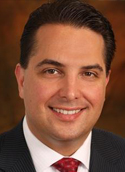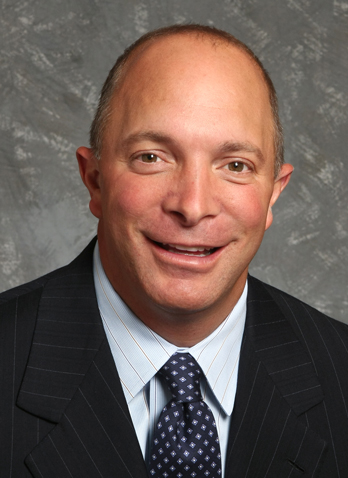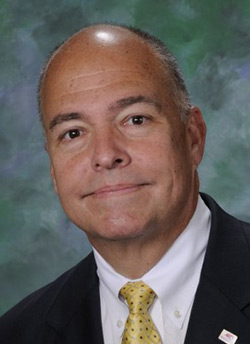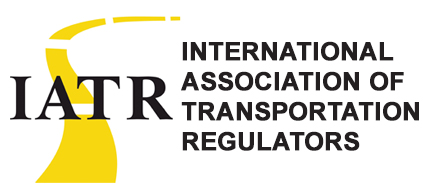Hundreds of listeners tuned in on April 30 to What Are Transportation Regulators Doing to Respond to COVID-19?, a webinar hosted by International Association of Transportation Regulators (IATR) President Matt Daus of Windels Marx and sponsored by the association. The webinar, which ran for more than three hours, invited industry association leaders and regulators from some of the largest cities around the world in a conversation about how everyone involved in transportation—operators and the riding public alike—can manage and emerge from the crisis in an effective manner.
 IATR President Matt Daus
IATR President Matt Daus
The all-star panel included Robert Alexander of the NLA, Peter Pantuso of the American Bus Association (ABA), and Tom Arrighi of The Transportation Alliance (TTA), as well as Jim Mullen of the FMCSA, Aloysee Heredia Jarmoszuk of the New York City Taxi and Limousine Commission, Jarvis Murray of the Los Angeles Department of Transportation, Rupal Bapat of the Chicago Department of Business Affairs and Consumer Protection, David Do of the D.C. Department of For-Hire Vehicles, Sylvain Tousignan of the Bureau du Taxi de Montreal, and Jaspal Singh of the International Association of Public Transport.
 NLA President Robert Alexander
NLA President Robert Alexander
Daus gave the regulators on the forefront of crafting and enforcing policies, especially new COVID-19 policies, an opportunity to explain what was happening in their cities. Ridership is down for every facet of transportation—from taxis and chauffeured to rideshares to even bike and scooter programs. Since the pandemic is being fought on a state-by-state basis, regulators have the unenviable position of balancing the safety of their traveling public with the needs of transportation providers that have been financially wounded during the crisis. Many cities have deferred license fees or extended license renewals until the summer, and have been working with transportation partners to repurpose how vehicles are used. For example, Murray and Do mentioned food delivery services for seniors and low income residents in Los Angeles and D.C., respectively, while Chicago is subsidizing rides for disabled passengers up to $30 one way.
 ABA President Peter Pantuso
ABA President Peter Pantuso
On the federal level, Mullen talked about the revised Hours of Service deferment, which is set to expire on May 15 and may be extended as needed. The FMCSA had also temporarily suspended the expiration of CDLs, primarily because DMVs in many states are closed, as well as updated its guidance on drug and alcohol testing. He notes that audits are still happened, although they are being done as carefully as possible and preferably off-site. Mullen also noted that, in conjunction with FEMA, a million of masks have been distributed to truck drivers across the country as they are deemed essential.
Pantuso offered a sobering look at the motorcoach industry, which is down more than 90 percent with its most profitable earning months in the spring and summer being impacted for 2020. ABA is asking Congress for $10 billion in grants and low-interest loans specific to the motorcoach industry, as he anticipates that the industry will be operating only at a 25 percent level by the end of the year.
Like Pantuso, Alexander is grateful for the Paycheck Protection Program (PPP) that offered small businesses forgivable loans to cover salaries and partial expenses for rent and utilities for eight weeks. However, both are frustrated that the program doesn’t quite work for the needs of the industry. Both hope that the forgiveness period will be extended through the end of the year, that the eight-week period can be customized for each business to offer some liquidity when travel resumes and demand for drivers returns, and that the ratio of forgivable funds be revised to perhaps 50/50 over the current 75/25 split to accommodate asset-heavy businesses that are currently seeing no revenue. Alexander also noted that furloughed drivers may be earning more on unemployment with the additional $600 weekly funds for four months.

And with a slow rebound anticipated for the corporate travel and hospitality sectors, the association leadership offered their wish list for how they can get support from the local and federal government. Alexander and Arrighi asked that any new protocols for transportation providers be thoughtful for public safety and not spur of the moment—which often come at a high cost to companies. Both agreed that this might be a time for a common-sense approach to operations, such as eliminating the barriers to commerce within certain jurisdictions and reducing or waiving airport fees with the goal of encouraging the public to travel safely. All cities are reliant on travel and tourism, and everyone wants it to resume in a safe and healthy manner.
The full webinar is available here. For current updates, visit the IATR’s COVID-19 page at iatr.global/covid-19.
[05.04.20]

